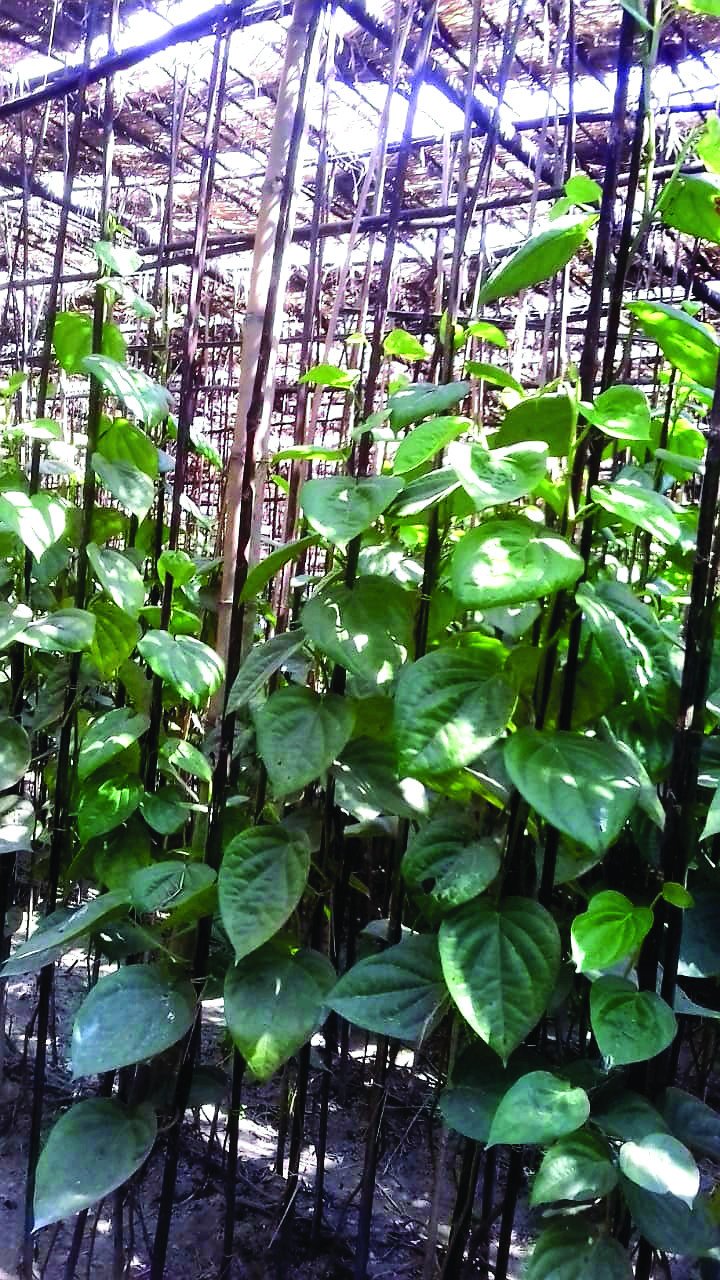‘Paan’ pain: High farming cost & poor demand hit cultivation in Islampur

raiganj: Betel leaf cultivation in Islampur area of North Dinajpur is on the decline with farmers being unable to continue the same due to increase in production cost and low demand. Besides these challenges, some farmers also claim that the soil in the region is becoming less fertile for cultivation of ‘paan’ leaves due to overuse of chemical fertilisers.
Islampur is an important location in the ‘paan’ cultivation map of Bengal. Srikrishnapur and Choprajhaar villages adjacent to Islampur town are the main locations of the betel leaf plantations of this region. Earlier, Islampur’s ‘Bangla-paata Paan’ had a good demand in Bihar, Jharkhand and Assam. However in the last 10 to 15 years, the scenario has completely changed.
Prankrishna Dutta, a farmer of Chopra Jhaar, said: “It has become really hard to make both ends meet by depending only on Paan farming. The cost involved in the farming process has multiplied manifold while the returns are meager.”
10 years ago, 1 Bigha of plantation would yield 4.5 lakh ‘Paan’ in a year. This number has declined to 3.5 lakh at present owing to the soil losing its fertility and the use of chemical fertilisers.
The cost for cultivation for a 1 bigha plantation was around Rs 50,000 about ten years back.
Now, it has become double, amounting to Rs 1 lakh. Profits have shrunk by around 20 per cent, informed growers.
Many betel plantation owners have sold their plantations. Cut throat competition from the farmers of Kakdwip and Sagar areas of South Bengal coupled with shrinking markets and skyrocketing production costs are reasons for this decline.
The betel plantation owners claim that only the farmers who have no alternatives are engaged in ‘Paan’ farming now. Others have shifted to small tea farming and other businesses.
Shailen Dutta, a former betel leaf plantation owner, told Millennium Post, “The increase in cost of production and lack of demand took away all the profits. I finally had to give up the plantation. Besides, repeated farming in the same soil adversely affects the quality and taste of the Paan,” he claimed.
The number of beetle plantations has decreased to merely three hundred, almost one fourth in the last ten years. Sagar Konar, District Horticulture Officer of North Dinajpur said: “We are all ready to help the cultivators. Whenever they come to us with problems, we try to resolve them and also provide all necessary support.”



